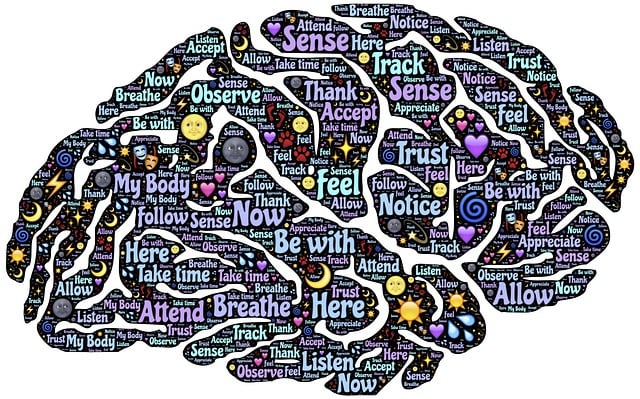Greenwood Village Terminal Illness Therapy offers comprehensive support for individuals dealing with terminal illnesses by focusing on building inner strength and emotional resilience. They utilize evidence-based practices like mindfulness meditation, stress reduction techniques, and cognitive reframing to help patients manage grief, anxiety, and depression. Through tailored coping strategies, personalized self-care routines, and open communication, participants gain control, enhance mental well-being, and make informed end-of-life decisions with dignity. This holistic approach empowers individuals and families navigating terminal illness, fostering emotional intelligence and reducing stigma.
Coping skills are essential for navigating life’s challenges, especially when facing a terminal illness. This article explores the critical role of developing effective coping mechanisms in managing the emotional and psychological impacts of terminal care. We delve into strategies that individuals and their support systems can employ, emphasizing the value of Greenwood Village Terminal Illness Therapy in fostering resilience. By understanding personal coping styles, one can enhance their ability to confront and overcome the unique hurdles presented by a terminal diagnosis.
- Understanding Coping Skills and Their Significance in Terminal Illness
- The Role of Greenwood Village Terminal Illness Therapy
- Identifying Personal Coping Mechanisms
- Strategies for Effective Coping Skill Development
- Nurturing Resilience in the Face of Terminal Illness
Understanding Coping Skills and Their Significance in Terminal Illness

Coping skills are essential strategies that individuals use to navigate and manage stressful or challenging situations, especially when facing a terminal illness. In the context of Greenwood Village terminal illness therapy, understanding coping mechanisms becomes paramount for both patients and their support networks. These skills play a crucial role in enhancing quality of life, fostering resilience, and mitigating the psychological impact of receiving a serious diagnosis.
Terminal illnesses often bring about an array of emotional challenges, from grief and anxiety to fear and depression. Effective coping strategies, such as mindfulness meditation and stress reduction methods, can empower individuals to confront these feelings head-on. By incorporating techniques like deep breathing exercises, cognitive reframing, and engaging in meaningful activities, patients can develop a sense of control and promote mental well-being. Moreover, the role of mental health professionals cannot be understated, especially when assessing risk factors and providing appropriate support to ensure the best possible outcome for those facing these formidable health challenges.
The Role of Greenwood Village Terminal Illness Therapy

Greenwood Village Terminal Illness Therapy plays a pivotal role in empowering individuals and their families to cope with the challenges posed by terminal illnesses. This specialized therapy goes beyond mere symptom management; it focuses on fostering inner strength development, enhancing emotional intelligence, and addressing the profound impact of mental illness stigma reduction efforts. Through compassionate and tailored support, Greenwood Village offers a sanctuary where patients can navigate their emotional journeys, find solace, and prepare for life’s inevitable transitions with dignity.
The program incorporates various evidence-based practices to holistically address psychological, social, and spiritual aspects affected by terminal illnesses. By nurturing emotional resilience, individuals gain the tools necessary to communicate openly about their experiences, seek support from loved ones, and make informed decisions regarding end-of-life care. This comprehensive approach not only improves quality of life but also equips participants with the strength to advocate for themselves in healthcare settings, ensuring their voices are heard during this vulnerable period.
Identifying Personal Coping Mechanisms

Identifying Personal Coping Mechanisms is a crucial step in navigating life’s challenges and seeking Greenwood Village Terminal Illness Therapy. Everyone has unique ways of dealing with stress, anxiety, or difficult emotions. Some individuals find solace in creative outlets like art or music, while others turn to physical activities or spending time in nature for relaxation. Recognizing these personal coping mechanisms is the first step towards enhancing mental resilience.
At Greenwood Village Terminal Illness Therapy, we emphasize the importance of understanding one’s innate coping strategies. This awareness enables individuals to integrate effective self-care routines (Self-Care Routine Development for Better Mental Health) into their lives, thereby reducing the impact of stressors and preventing conditions like depression (Depression Prevention). Additionally, for mental health professionals, recognizing these mechanisms is vital when designing Risk Management Planning, ensuring they can offer tailored support to clients.
Strategies for Effective Coping Skill Development

Developing effective coping skills is a vital aspect of maintaining mental well-being, especially when facing challenging life situations such as terminal illness. Greenwood Village Terminal Illness Therapy emphasizes the importance of personalized strategies to enhance resilience and quality of life. One key approach involves incorporating self-care practices tailored to individual needs. This can include activities like mindfulness meditation, regular exercise, or engaging in creative outlets to promote emotional balance and reduce stress. By prioritizing self-care, individuals can cultivate a sense of control and foster positive thinking, which are essential tools in navigating difficult circumstances.
Additionally, seeking support from peers, family, or professional therapists plays a significant role in coping skill development. Mental Health Policy Analysis and Advocacy groups often provide valuable resources and community connections, fostering an environment where individuals feel understood and empowered. Encouraging open conversations about mental health challenges and celebrating small victories can create a supportive network, enabling better management of emotions and overall well-being. Positive thinking techniques, such as reframing negative thoughts and practicing gratitude, are also powerful tools that can be cultivated through consistent effort and guidance from therapists or support groups.
Nurturing Resilience in the Face of Terminal Illness

In the face of a terminal illness, nurturing resilience is an invaluable coping skill that can significantly enhance one’s quality of life and emotional healing processes. Greenwood Village Terminal Illness Therapy offers specialized programs designed to empower individuals to navigate this challenging journey with grace and fortitude. Through individual counseling, support groups, and mental wellness coaching programs, patients are guided to develop strategies for managing anxiety relief, integrating new perspectives, and cultivating inner strength. These therapeutic approaches not only help in coming to terms with the diagnosis but also foster a deeper sense of purpose and meaning.
The development of coping skills is an integral part of the journey towards mental wellness. By embracing a holistic approach that incorporates emotional healing processes, individuals can transform their experience from one of despair to one of empowerment. In addition to direct therapy sessions, Greenwood Village Terminal Illness Therapy encourages patients to engage in activities that promote self-care and stress reduction, further reinforcing resilience and overall mental wellness.
Coping skills are invaluable for navigating the challenges posed by terminal illness. By understanding and adopting effective strategies, individuals can enhance their resilience and quality of life. Greenwood Village Terminal Illness Therapy plays a pivotal role in this process, offering specialized support to identify personal coping mechanisms and develop robust strategies. Through focused efforts, it’s possible to transform adversity into opportunities for growth and profound personal transformation.














